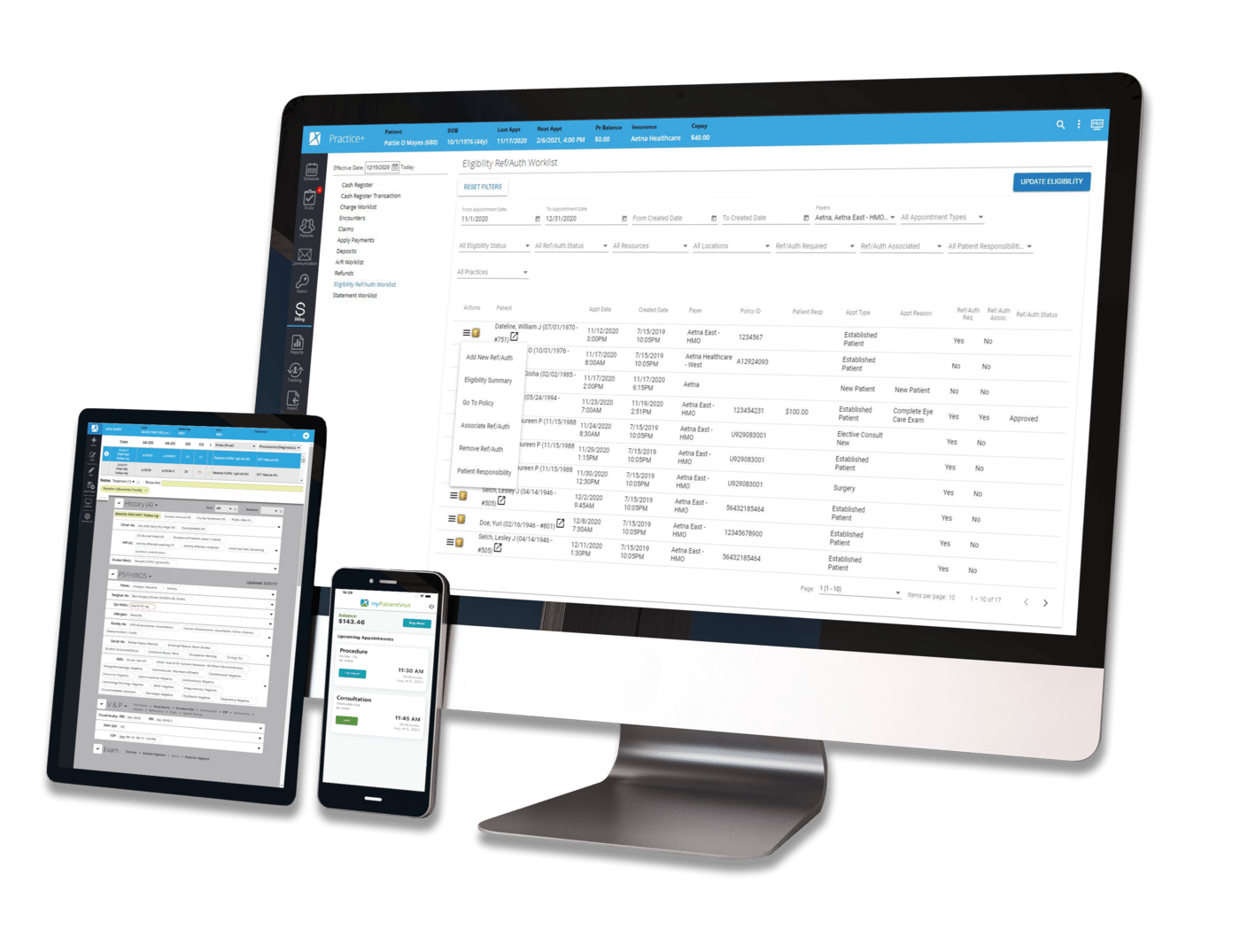Latest Articles
The latest news and information regarding electronic medical records, practice management software, HIPAA, and security from Nextech.

Patient Engagement | Healthcare Technology
By:
Nextech
June 13th, 2016
For specialty providers, especially those practices who rely on referrals from other doctors, maintaining an online presence may not be at the top of the priority list. But just like any other business, it is imperative that specialty medical practices make an effort to be online. Naturally, the next question is how do you go about solidifying our practice's online presence? Here are three ways to accomplish just that.

Patient Engagement | Healthcare Technology
By:
Nextech
June 9th, 2016
Virtual health care - or telemedicine - seems to be a natural step in the expansion of the Healthcare IT industry. The growth of technology in medicine has evolved into a greater interest in healthcare by text, phone or even video. With a growth rate between 18-30 percent per year, telehealth is expected to be much more common resource for providers and patients over the next few years as the benefits extend to both parties.


By:
Nextech
June 6th, 2016
There are many aspects within healthcare technology that the government wants to improve - interoperability, compliance and others. But did you consider transparency to be among that group? The government does, which is why it's launched a brand new initiative to promote greater transparency among certified health IT products.

By:
Nextech
June 3rd, 2016
Not even the NFL is safe from the recent rise in stolen healthcare data. According to a report from Deadspin, a laptop belonging to an athletic trainer for the Washington Redskins was stolen out of the trainer's car after it was broken into. The laptop was located in a backpack, which was taken during the robbery.

Plastic Surgery | Patient Engagement | Healthcare Technology
By:
Nextech
June 2nd, 2016
If you're a plastic surgeon or work in a plastic surgery office, the importance of implementing the right practice management software is crucial to the success of the clinic. With a proper practice management system, plastic surgeons can quickly access pertinent data and information as well as maintain schedules and keep track of inventory all in one place. That kind of efficiency not only saves the practice a lot of time on various administrative workflows but it helps reduce stress as well.

Security & Data Management | Healthcare Technology
By:
Nextech
May 31st, 2016
Visit any healtchare IT blog today and it's likely you'll see a barrage of articles pertaining to cybersecurity - and for good reason. The healthcare industry has been especially vulnerable to cybersecurity attacks through tactics such as ransomware or data hacking, which is why the College of Healthcare Information Executives (CHIME) decided to do something about. In a press release on Tuesday,CHIME announced the creation of the Cybersecurity Center and Program Office.

Regulatory & Compliance | Security & Data Management | Healthcare Technology
By:
Nextech
May 26th, 2016
Every day, it seems something new is happening in the healthcare industry. Whether it's greater innovations in technology, breaking compliance news or even the growing threat of data hacking, there's a lot going on in healthcare. So you're able to catch up on all of the relevant news, lunchtime links will be a valuable resource for you to read about what's going on in the industry in one place, rather than searching all over the Internet.

EHR | Coding | Regulatory & Compliance | Technology & Innovation
By:
Nextech
May 23rd, 2016
While the current ICD-10 “grace period” offers physicians at least some protection against gratuitous rejections as everyone adjusts to the new system, this concession will end on October 1 2016. This means that, in a matter of months, all physicians in the U.S. will be expected to code in ICD-10 with a high level of proficiency and specificity. Those who cannot will likely experience a sudden uptick in rejected claims, as well as open themselves up to the possibility of non-compliance fines from Health and Human Services (HHS).